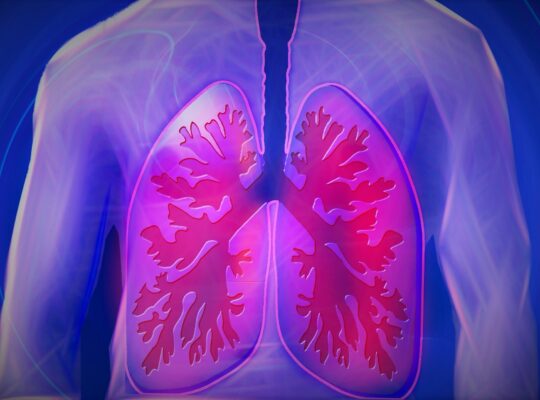
Introduction:
Regular physical activity is essential for achieving and maintaining optimal health and well-being. From improving cardiovascular health to boosting mood and reducing the risk of chronic diseases, the benefits of exercise are numerous and far-reaching. In this section, we’ll explore the importance of incorporating regular physical activity into your lifestyle and offer practical tips on how to make exercise a regular part of your routine.
Why Move Your Body?
- Improves Cardiovascular Health: Regular exercise strengthens the heart and improves circulation, lowering the risk of heart disease, stroke, and high blood pressure. It also helps lower LDL (bad) cholesterol levels and raise HDL (good) cholesterol levels.
- Enhances Mental Health: Physical activity has been shown to reduce symptoms of depression, anxiety, and stress, while improving mood and overall psychological well-being. Exercise stimulates the release of endorphins, neurotransmitters that promote feelings of happiness and euphoria.
- Boosts Energy Levels: Engaging in regular physical activity increases energy levels and reduces fatigue by improving blood flow and oxygen delivery to muscles and tissues. It also enhances mitochondrial function, the powerhouse of cells responsible for energy production.
- Supports Weight Management: Exercise helps burn calories and build lean muscle mass, making it an effective tool for weight loss and weight maintenance. It also boosts metabolism, allowing you to burn more calories even at rest.
- Strengthens Bones and Joints: Weight-bearing exercises such as walking, running, and strength training help strengthen bones and reduce the risk of osteoporosis and fractures. Exercise also improves joint mobility and flexibility, reducing the risk of injury and arthritis.
- Improves Sleep Quality: Regular physical activity promotes better sleep quality by regulating circadian rhythms, reducing stress, and promoting relaxation. Exercise can help you fall asleep faster and enjoy deeper, more restorative sleep.
- Enhances Cognitive Function: Exercise has been shown to improve cognitive function, including memory, attention, and executive function. It stimulates the release of growth factors that promote neuroplasticity, the brain’s ability to adapt and change.
How to Incorporate Physical Activity Into Your Routine:
- Find Activities You Enjoy: Choose activities that you enjoy and look forward to, whether it’s walking, cycling, dancing, swimming, or playing a sport. The key is to find activities that are fun and enjoyable for you.
- Set Realistic Goals: Set specific, measurable, attainable, relevant, and time-bound (SMART) goals for your exercise routine. Start with small goals and gradually increase the intensity, duration, and frequency of your workouts over time.
- Make it a Habit: Schedule exercise into your daily routine and treat it like any other appointment. Set aside dedicated time for physical activity, whether it’s in the morning, during lunch break, or in the evening.
- Mix it Up: Keep your workouts varied and interesting by trying different types of exercises and activities. Incorporate a combination of cardiovascular exercise, strength training, flexibility exercises, and balance training for a well-rounded fitness routine.
- Listen to Your Body: Pay attention to how your body feels during and after exercise and adjust your intensity and duration accordingly. Take rest days when needed and avoid pushing yourself too hard, which can lead to burnout or injury.
- Stay Consistent: Consistency is key when it comes to reaping the benefits of exercise. Aim to exercise most days of the week, even if it’s just for a short duration. Remember that every bit of movement counts towards your overall health and well-being.
Conclusion:
Regular physical activity is essential for achieving and maintaining optimal health and well-being. By incorporating exercise into your daily routine and making it a priority, you can enjoy numerous benefits for your body and mind. Whether it’s improving cardiovascular health, boosting mood, managing weight, or enhancing cognitive function, exercise has the power to transform your life for the better. Start moving your body today and experience the positive impact it can have on your overall health and quality of life.
Title: Move Your Body: The Importance of Regular Physical Activity for Health and Well-being
Introduction:
Regular physical activity is essential for achieving and maintaining optimal health and well-being. From improving cardiovascular health to boosting mood and reducing the risk of chronic diseases, the benefits of exercise are numerous and far-reaching. In this section, we’ll explore the importance of incorporating regular physical activity into your lifestyle and offer practical tips on how to make exercise a regular part of your routine.
Why Move Your Body?
- Improves Cardiovascular Health: Regular exercise strengthens the heart and improves circulation, lowering the risk of heart disease, stroke, and high blood pressure. It also helps lower LDL (bad) cholesterol levels and raise HDL (good) cholesterol levels.
- Enhances Mental Health: Physical activity has been shown to reduce symptoms of depression, anxiety, and stress, while improving mood and overall psychological well-being. Exercise stimulates the release of endorphins, neurotransmitters that promote feelings of happiness and euphoria.
- Boosts Energy Levels: Engaging in regular physical activity increases energy levels and reduces fatigue by improving blood flow and oxygen delivery to muscles and tissues. It also enhances mitochondrial function, the powerhouse of cells responsible for energy production.
- Supports Weight Management: Exercise helps burn calories and build lean muscle mass, making it an effective tool for weight loss and weight maintenance. It also boosts metabolism, allowing you to burn more calories even at rest.
- Strengthens Bones and Joints: Weight-bearing exercises such as walking, running, and strength training help strengthen bones and reduce the risk of osteoporosis and fractures. Exercise also improves joint mobility and flexibility, reducing the risk of injury and arthritis.
- Improves Sleep Quality: Regular physical activity promotes better sleep quality by regulating circadian rhythms, reducing stress, and promoting relaxation. Exercise can help you fall asleep faster and enjoy deeper, more restorative sleep.
- Enhances Cognitive Function: Exercise has been shown to improve cognitive function, including memory, attention, and executive function. It stimulates the release of growth factors that promote neuroplasticity, the brain’s ability to adapt and change.
How to Incorporate Physical Activity Into Your Routine:
- Find Activities You Enjoy: Choose activities that you enjoy and look forward to, whether it’s walking, cycling, dancing, swimming, or playing a sport. The key is to find activities that are fun and enjoyable for you.
- Set Realistic Goals: Set specific, measurable, attainable, relevant, and time-bound (SMART) goals for your exercise routine. Start with small goals and gradually increase the intensity, duration, and frequency of your workouts over time.
- Make it a Habit: Schedule exercise into your daily routine and treat it like any other appointment. Set aside dedicated time for physical activity, whether it’s in the morning, during lunch break, or in the evening.
- Mix it Up: Keep your workouts varied and interesting by trying different types of exercises and activities. Incorporate a combination of cardiovascular exercise, strength training, flexibility exercises, and balance training for a well-rounded fitness routine.
- Listen to Your Body: Pay attention to how your body feels during and after exercise and adjust your intensity and duration accordingly. Take rest days when needed and avoid pushing yourself too hard, which can lead to burnout or injury.
- Stay Consistent: Consistency is key when it comes to reaping the benefits of exercise. Aim to exercise most days of the week, even if it’s just for a short duration. Remember that every bit of movement counts towards your overall health and well-being.
Conclusion:
Regular physical activity is essential for achieving and maintaining optimal health and well-being. By incorporating exercise into your daily routine and making it a priority, you can enjoy numerous benefits for your body and mind. Whether it’s improving cardiovascular health, boosting mood, managing weight, or enhancing cognitive function, exercise has the power to transform your life for the better. Start moving your body today and experience the positive impact it can have on your overall health and quality of life.







